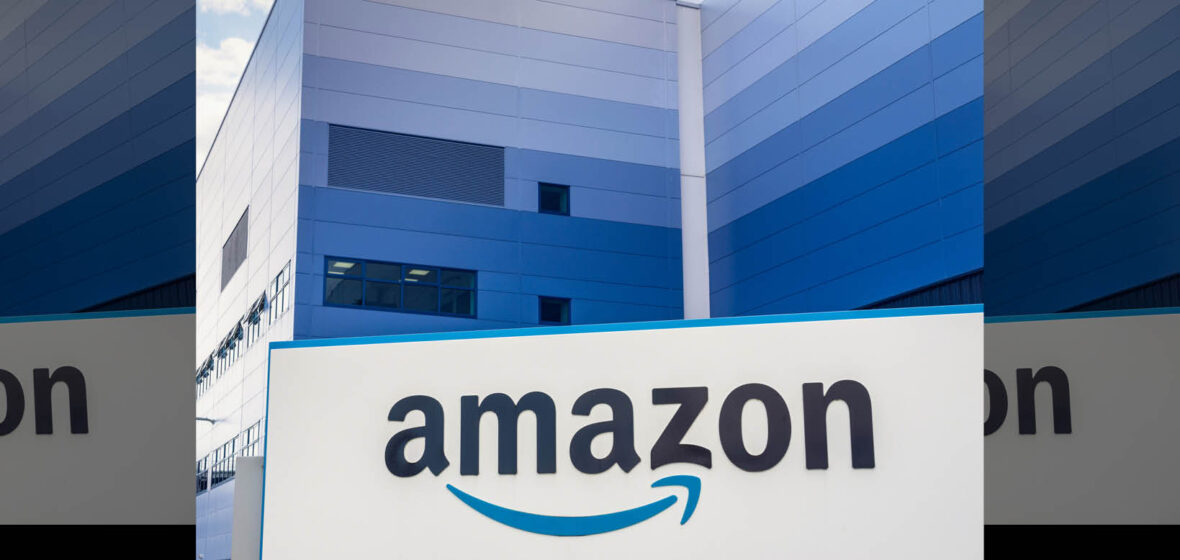The recent US Federal Trade Commission lawsuit against Amazon Inc. raises questions about its conduct – and that of other leading online commerce sites – in Australia. Do the FTC allegations against Amazon apply here?
Amazon debuted in the Australian retail market in December 2017, but it was already a familiar brand. Amazon Web Services launched in Australia in 2012 and an Australian Kindle store opened in 2013. Just prior to Amazon entering the market in 2017, The Guardian Australia reported that Amazon “promises to unleash the biggest disruption to the Australian market since the rise of department stores”. Indeed, Harvey Norman’s chairman Gerry Harvey accused Amazon of paying no tax and threatening to decimate other retailers.
In May 2023, The Australian reported that market analysts at Jarden had predicted Amazon would increase its gross merchant value to $5.5 billion in 2024. The factors contributing to these phenomenal profits include an expansion of same-day delivery, greater uptake of Amazon Prime, and a major expansion of its marketplace to over 200 million products. Investment and advisory group Jarden indicated that many retailers on the Australian Stock Exchange would face a diminished value as a result, including JB Hi-Fi, Super Retail Group (which owns Rebel Sport and Supercheap Auto), Wesfarmers, Kogan, Temple & Webster and Adore Beauty.
The recent Federal Trade Commission lawsuit against Amazon Inc. in the US raises questions about its conduct – and that of other leading online commerce sites – in Australia. LSJ spoke to experts about how applicable the FTC allegations against Amazon are to our own market.
Chandni Gupta, Deputy CEO and Digital Policy Director at the Consumer Policy Research Centre (CPRC), says, “We see similar conduct from Amazon in Australia, but we don’t yet have the laws to stop the harm caused. There are gaps in both Australia’s privacy laws and the consumer law, which can leave Australians with far fewer protections online than consumers in the US and other countries.”
She adds, “We do have strong consumer laws, but there are gaps and there are limits to what regulators can do; they’re not always empowered to take action. We have laws against misleading and deceptive conduct, but the benchmark is quite high when it goes to the court.”

Gupta points to a 2022 CPRC report, How Australia can stop unfair business practices, as relevant to this discussion.
The report advocates better resourcing of regulators, to enable thorough assessment of potentially unfair practices before they can do widespread harm; increase penalties and enforcement actions to deter businesses from continuing or engaging in unfair practices; and make it possible to address in Australia practices found to be unfair in businesses that operate internationally. The last provision is certainly pertinent, inviting Australian regulators to keep a close eye on the Amazon lawsuit.
The FTC vs Amazon case
On 26 September 26, the US Federal Trade Commission (FTC) and 17 state attorneys general sued Amazon.com, Inc. for illegally maintaining monopoly power. The FTC claimed that Amazon’s illegal conduct violated competition laws and unfairly quashed rivals, leading to price inflation and lower quality of goods.
The FTC complaint targets Amazon’s strategies rather than its market size, accusing the technology and retail giant of unfairly dominating the market, made of up billions of dollars in annual retail sales, hundreds of thousands of products, and more than a hundred million shoppers.
In a statement, FTC Chair Lina M. Khan said, “Our complaint lays out how Amazon has used a set of punitive and coercive tactics to unlawfully maintain its monopolies. The complaint sets forth detailed allegations noting how Amazon is now exploiting its monopoly power to enrich itself while raising prices and degrading service for the tens of millions of American families who shop on its platform and the hundreds of thousands of businesses that rely on Amazon to reach them. Today’s lawsuit seeks to hold Amazon to account for these monopolistic practices and restore the lost promise of free and fair competition.”
Deputy Director of the FTC’s Bureau of Competition, John Newman, said, “We’re bringing this case because Amazon’s illegal conduct has stifled competition across a huge swath of the online economy. Amazon is a monopolist that uses its power to hike prices on American shoppers and charge sky-high fees on hundreds of thousands of online sellers. Seldom in the history of US antitrust law has one case had the potential to do so much good for so many people.”
‘Seldom in the history of US antitrust law has one case had the potential to do so much good for so many people.’
The allegation is that Amazon engaged in anticompetitive conduct in both the market for online superstores that serve consumers, and in the separate market for sellers.
The company is accused of illegally requiring sellers on its platform to use its logistics and delivery services in exchange for prominent placement on the website and of unduly punishing merchants who offer lower prices on competing sites. Amazon does not allow sellers to offer lower prices on other marketplace sites, which the FTC says curbs online competition because sellers are pressured into raising their prices on other sites or face the punishment of being downgraded in Amazon search results.
The FTC and its state partners desire a permanent injunction that prohibits Amazon from engaging in ‘unlawful conduct’.
The FTC has now filed four cases against Amazon this year. In May, the agency sued Amazon in two separate cases for failing to delete data about children collected by its Alexa speakers, and using its Ring doorbells and cameras to illegally spy on users. While Amazon voiced its disagreement with the allegations, it agreed to a resolution via paying $US30.8 million ($48 million).
On 21 June 2023, the FTC sued Amazon in a consumer protection case, claiming that Amazon fooled consumers into signing up for Prime membership, then made it exceptionally hard to cancel membership. Amazon denies the allegations, with its October filing stating that it “prominently and repeatedly” disclosed key terms — including price and automatic renewal — to Prime customers. A 10-day non-jury trial in the case is scheduled for February 2025 under US District Judge John Chun.
Australia, Europe and Amazon
On 10 February 2020, the Australian Government directed the Australian Competition and Consumer Commission (ACCC), Australia’s antitrust regulator, to conduct a five-year inquiry into digital platform services in Australia and the impact of these markets on competition and consumers. The inquiry reports to the Treasurer every six months, and will do so until its conclusion in March 2025.
In July 2021, the ACCC launched an inquiry into the Australian outlets of Amazon.com Inc., eBay Inc., and other online markets as part of a broader Digital Platform Services Inquiry. During the pandemic, the online marketplaces were seeing a surge in sales that raised the prospect of potentially unfair market practices. The ACCC reported that in 2020 Australian online purchases increased 57 per cent, for a record $50.5 billion spend: Amazon doubled its sales on the year prior.
In Australia, Amazon Australia, Catch, eBay Australia and Kogan jointly amassed a total of $8.4 billion in 2020–21, an increase of 21 per cent compared to 2019–20.
A year later, in July 2022, Amazon responded to the European Commission’s concerns over anti-competitive market practices by offering to modify its practices. This included a legal commitment from Amazon to cease using other sellers’ data for its in-house retail business. Amazon would otherwise have faced a multi-billion-dollar fine following a two-year investigation that began in 2019. In Australia, the ACCC was denied access to Amazon’s algorithms to assess whether anti-competitive market practices were taking place.
The European Commission found that both Buy Box and Prime unduly favour Amazon’s own retail business, as well as marketplace sellers that use its logistics and delivery service. In avoiding the fine, Amazon conceded it would allow seller to choose their own logistics provider without consequent discrimination for a period of five years, inclusive of current and future Amazon marketplaces in the European Economic Area. The Commission would receive regular reports from a monitoring trustee to ensure these commitments were adhered to.
While the ACCC claimed to be paying close attention, it has not imposed similar conditions on Amazon’s Australian operation. This is partially due to the smaller market share that Amazon holds in Australia compared to its European dominance. In Australia, eBay outpaced Amazon, with sales of over $5.3 billion in 2020–21; the figure for Amazon in the same period was $1.3 billion.
In April this year, the fourth ACCC report in its Digital Platform Services Inquiry raised a number of concerns around the operations of Amazon Australia, Catch, eBay Australia and Kogan. It also recognised the immense benefits to consumers and sellers on these sites. The concerns applied to the secrecy of algorithms that potentially enabled sites to preference their in-house branded products in searches, the use of consumer data, inadequate dispute resolution processes and a lack of consumer protections.
The April report recognised that Amazon Australia’s sales remain significantly lower than eBay Australia’s and those of Big W, David Jones, Kmart, Myer and Target. However, Amazon Australia’s sales are growing faster than those other platforms. In its fifth Digital Platform Services Inquiry report, the ACCC considered whether Australia needs a new regulatory framework to address competition and consumer concerns with digital platform services more broadly.
the ACCC considered whether Australia needs a new regulatory framework to address competition and consumer concerns with digital platform services more broadly
On 1 March 2019, colleagues Dr Rob Nicholls, Senior Lecturer in the UNSW School of Business and Taxation, and Dr Katharine Kemp, Lecturer in the UNSW Faculty of Law, made a joint submission to the Digital Platforms Inquiry’s Preliminary Report. Nicholls has been keeping abreast of the Digital Platforms Inquiry, and is largely optimistic about its operation and scope.
He says, “Unlike Europe, the UK and the US, our law is very specific. It says you can have more than one corporation having a substantial degree of market power within a market. It took Europe 20 years to come to that view, and the US still hasn’t got there. The question then is, has that corporation abused that market power? The FTC says that it has in the case of Amazon.”
Nicholls adds, “The law in Australia is already addressing the concerns that the FTC has raised in the US.”
Nicholls is referring to the Competition and Consumer Amendment (Misuse of Market Power) Act 2017 (Cth). From 6 November 2017, the amended section 46 prohibits a firm with a substantial degree of market power from engaging in conduct that has the purpose, effect or likely effect of substantially lessening competition in any Australian market.
Nicholls says, “There’s been no prior case law since the law came into effect, but the heart of section 46 is that a corporation that has a substantial degree of market power must not engage in the purpose of substantially lessening competition in that market. This is what the ACCC is investigating, as well. In Australia, we’d say that a corporation is misusing market power rather than maintaining or monopolising market power. In the online retail market in the US, you have Amazon head and shoulders above the others. In Australia, eBay still has greater revenue than Amazon, so it’s possible that both Amazon and eBay would have ‘a substantial degree of market power’ [as per section 46].”

Nicholls explains that in the US, the term ‘antitrust’ – as it applies to the FTC case against Amazon – is essentially based on the idea that there can be a regulatory response that simply breaks up a monopoly.
“In the EU, a business that becomes a monopoly can be forced to break up. That’s not the case in Australia. If you become a monopoly on an organic basis, you can maintain that monopoly, but you cannot misuse your market power. There are a number of antitrust approaches in the US towards a number of platforms: Facebook or Meta, Google, Apple, Microsoft and Amazon. Those big five companies are, from time to time, being litigated.”
Is reform really needed?
The fifth report, released in September 2022, acknowledged submissions, including one from Amazon Australia. The submission said, in part, “If any potential harms are identified as arising from specific activities, stakeholder views should be sought on whether the existing Competition and Consumer Act 2010 (Cth) (CCA) and the Australian Consumer Law (ACL) provisions, associated instruments and pending reforms are capable of addressing any identified harm(s). Reforms should only be introduced where there is clear evidence that the existing competition and consumer regime is not capable of addressing the identified harm.
“On the second question of the shape of any proposed new regulatory tools, Amazon Australia considers that a detailed assessment of the costs and benefits, including the potential benefits to consumers and businesses and the impacts on innovation, competition, investment and economic growth, needs to be undertaken. The Discussion Paper refers, at a high level, to broad potential regulatory frameworks. Specific proposals and more detail is needed before a meaningful cost-benefit assessment can be made.”
In addition to introducing legal prohibitions on proposing, applying or relying on an unfair contract terms, and raising the penalties available for other breaches of the ACL and CCA (which have exacted fines up to $153 million in the past), the ACCC has proffered the Digital Markets Act (EU) (DMA) as a potential blueprint for legislative reform in Australia. Amazon Australia’s submission claimed that “there is no certainty that importing the DMA would not harm Australian innovation and investment disproportionately to its perceived benefits.”
Nicholls acknowledges that the submission from Amazon Australia to the first Digital Platforms Inquiry illustrated how “sophisticated it is in its regulatory responses in recent years.”
For that reason, he says the chances of the ACCC introducing regulation that may stifle innovation and risk consumer access to bargain prices and expansive product range is unlikely.




